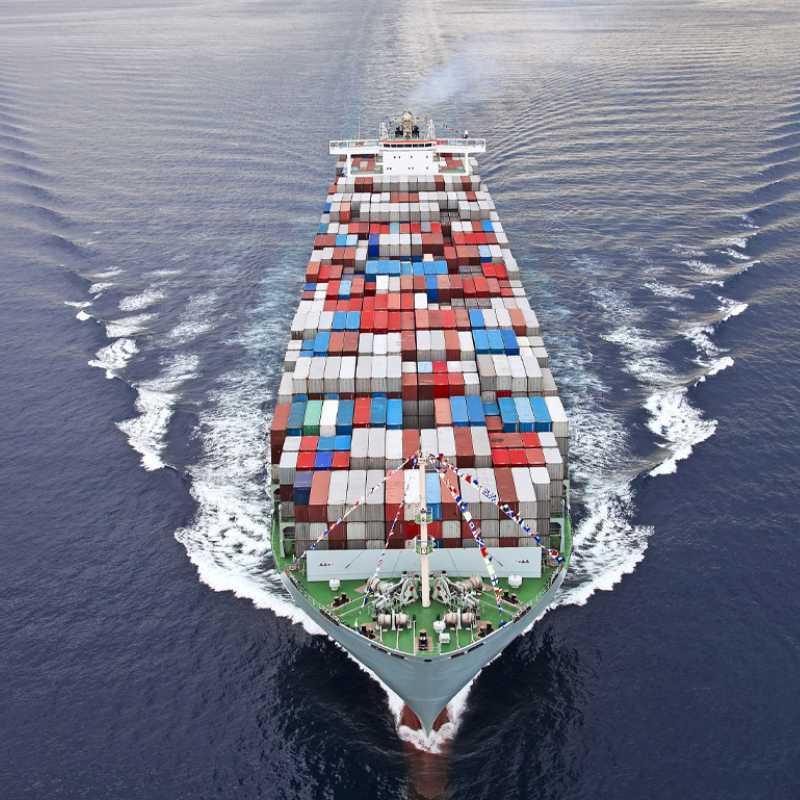Blog Post
Comprehensive guide to Voyage Data Recorder Regulations
Posted By:
Posted On : 14-Aug-2023

Comprehensive Guide to Voyage Data Recorder Regulations
In the intricate world of maritime safety and navigation, adherence to regulations is paramount. One crucial aspect of ensuring safety at sea is the proper functioning and compliance of Voyage Data Recorders (VDRs).
These devices, often referred to as the "black boxes" of ships, play a pivotal role in recording and storing critical data. In this comprehensive guide, we will delve into voyage data recorder regulations, why they are essential, and how compliance is achieved.
Understanding Voyage Data Recorders (VDRs)
Before we dive into the regulations surrounding VDRs, let's establish a clear understanding of what these devices are and why they are crucial.
What Is a Voyage Data Recorder (VDR)?
A Voyage Data Recorder (VDR) is a sophisticated onboard device designed to record and store vital information related to a vessel's voyage. Similar to the black boxes found on aircraft, VDRs capture a wide range of data, including:
Vessel's position, speed, and heading: This data helps in reconstructing the vessel's route and speed at any given time.
Audio recordings: VDRs record audio from the bridge of the ship, providing insights into conversations and commands issued during the voyage.
Radar and echo sounder data: These recordings offer a comprehensive view of the vessel's surroundings, including the detection of other vessels or obstacles.
Engine and equipment data: Information about the vessel's engine performance and other critical systems.
Why Are VDRs Essential?
VDRs serve multiple essential purposes, including:
Accident Investigation: In the event of a maritime accident or incident, VDR data becomes invaluable for accident investigators. It provides crucial insights into what transpired leading up to and during the incident.
Enhanced Safety: The continuous recording of data helps in monitoring and enhancing safety protocols, contributing to a safer maritime environment.
Data for Performance Analysis: VDR data can be used for performance analysis, helping shipping companies optimize their vessel operations and fuel efficiency.
Voyage Data Recorder Regulations
Now that we have a solid grasp of what VDRs are and why they are vital, let's explore the regulations governing these devices.
International Maritime Organization (IMO) Regulations
The International Maritime Organization (IMO), a specialized agency of the United Nations responsible for regulating shipping, has set forth comprehensive regulations regarding VDRs. These regulations are outlined in SOLAS (Safety of Life at Sea) Chapter V, Regulation 20. These regulations mandate the following:
Mandatory Installation: VDRs are mandatory for all passenger ships, cargo ships with a gross tonnage of 3,000 or more, and any other ships, as defined by the flag state, constructed on or after July 1, 2002.
Data Recording Requirements: VDRs must record and store data for a minimum of 12 hours. This includes a minimum of 2 hours of audio data, which should be easily accessible for playback.
Data Recovery: VDR data should be readily recoverable and protected against damage in the event of an accident, including immersion in water and exposure to fire.
Annual Performance Tests: VDRs must undergo annual performance tests (APTs) to ensure their proper functioning and data integrity.
Data Retrieval: VDR data should be capable of being retrieved and downloaded for analysis by the relevant authorities.
Flag State Regulations
In addition to IMO regulations, individual flag states may have their own specific requirements and regulations regarding VDRs. Shipowners and operators must adhere to both international and flag state regulations to ensure compliance.
Achieving Compliance with Voyage Data Recorder Regulations
Compliance with VDR regulations is not optional—it is a legal requirement aimed at enhancing maritime safety and accident investigation. Achieving compliance involves several critical steps:
Installation: Ensure that your vessel is equipped with a certified VDR that meets the necessary standards and regulations.
Regular Maintenance: Regularly maintain and service the VDR to ensure its proper functioning. This includes annual performance tests (APTs) to verify data integrity and accuracy.
Training: Crew members should receive training on the use and handling of VDR equipment. They should also know how to initiate data retrieval in the event of an incident.
Documentation: Maintain all relevant documentation, including records of APTs and servicing, as evidence of compliance.
Importance of Regular VDR Testing
As highlighted in IMO regulations, annual performance tests (APTs) are a fundamental aspect of VDR compliance. These tests are designed to ensure that VDRs function correctly, record data accurately, and can withstand challenging conditions.
The APT Process
The APT process typically involves:
Functional Testing: This includes verifying that all components of the VDR are functioning correctly. It assesses data recording, audio recording, and playback functionality.
Data Retrieval: During the test, data recorded by the VDR is retrieved and examined. This step ensures that data can be successfully retrieved for analysis.
Data Integrity: A crucial aspect of APTs is assessing the integrity of the recorded data. Any discrepancies or errors are thoroughly investigated and corrected.
Testing in Challenging Conditions: APTs may involve subjecting the VDR to simulated challenging conditions, such as extreme temperatures, vibration, and shock, to ensure that it remains operational.
The Role of Authorized Service Providers
To ensure the integrity and impartiality of APTs, they are typically conducted by authorized service providers. These providers have the expertise and equipment needed to perform thorough and accurate tests.
Conclusion
Voyage Data Recorder regulations, as established by the International Maritime Organization (IMO) and flag states, are crucial for enhancing maritime safety, accident investigation, and performance analysis.
Compliance with these regulations is not only a legal requirement but also a responsible approach to ensuring the safety of vessels, crew, and the marine environment.
At Marinetech Safety & Shipping Corporation, we understand the importance of compliance with VDR regulations. We offer comprehensive VDR Annual Performance Tests to ensure that your VDR meets the highest standards of reliability and functionality. Stay compliant, stay safe, and navigate the seas with confidence.